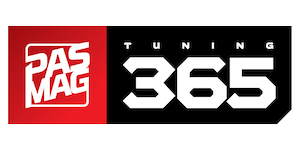Toyota returns to its roots with the Scion FR-S coupe aimed at bringing the driving experience back and making cars fun to drive again.
Rear-wheel drive coupes were plentiful in the '90s. The Toyota MR2 and Supra, Nissan 240 SX, Mazda RX-7 and Acura NSX all had flowing lines and performance under the hood to back up their stylish looks. As OBD2 came in and performance was sacrificed in the name of emissions, one by one, these cars went the way of the dodo bird. Since then, the RX-8 and S2000 have come and gone, and Nissan has ditched the 240 series for the 350 and now 370Z.
Coupe offerings from Toyota have been noticeably missing since the last MR2 left showrooms more than five years ago. But, starting with the 2013 model year, Toyota is returning to its roots with the Scion FR-S coupe, which is aimed at bringing the driving experience back and making cars fun to drive again.
The FR-S looks sleek and sporty from every angle. Borrowing some of its styling from the old Sports 800, 2000GT and iconic AE86 Corolla; and, it’s easy to find lines and shapes inspired by these classic Toyotas. Not only does the FR-S appear to be built for speed, but its low center of gravity and low coefficient of drag means the car accelerates and corners with little resistance. The pagoda roof helps streamline air for high-speed stability and, while the car may look like a hatchback at first peak, the coupe design maximizes chassis rigidity and keeps weight down with a minimal use of glass.
Getting behind the wheel for the first time is a treat. Ergonomics are designed around the driver and the large tachometer shows the car means business. Both driver and passenger are hugged by the OEM seats, which are bolstered much more like a race seat than the Honda Civic or Scion tC seat you may be used to today. The driver grips the smallest diameter steering wheel (14.37 inches or 365 mm for those used to aftermarket steering wheel sizing) ever placed in a Toyota.
Turning on the ignition for the first time, the distinct sound of a boxer engine is present. Ripping through all six gears on an open Nevada highway is effortless and smooth for the manual transmission. While the FR-S isn’t a top speed monster, its acceleration is predictable and plentiful thanks to its 2,700-pound curb weight. A few more horsepower wouldn’t hurt, but with the shared engine characteristics to boxer motors of the past, aftermarket modifications should be readily available shortly after the car launches.
Scion has arranged for a scenic drive route through scenic Red Rock Canyon State Park just outside of Las Vegas followed by a track session at Spring Mountain Motorsports Park, so I'm able to get a proper feel for the car both at speed and in casual driving situations. It isn’t lightning fast, but its nimbleness and predictability of traction makes it easy to drive the FR-S as spirited as you want. 
Scion Racing driver Ken Gushi is on hand to offer tips on how to get the car sideways on the wet skid pad, which is does willingly. Around a tight autocross course, the car turns quickly and precisely, breaking traction only when it's pushed to the limit. Admittedly, I enjoy the fun of sliding sideways (especially on a low-speed course) so I explore the limit more often than not. When given the chance to stretch its legs on the big track, the car really opens up and purrs. It's comfortable both on the straights and in the curves.
Overall, Scion’s first foray into the rear-wheel drive market is a calculated risk, but one that is likely to reap rewards. At just under $25,000 in the U.S., the car is priced much lower than the heavier Genesis Coupe and is in a completely different price and weight class compared to the 370Z and American m offerings.
Jack Hollis, VP of Scion VP, has long touted the FR-S as being “Frickin Really Sweet” and, frankly, I have to agree. The car is fun to drive, easy to get sideways and looks sleek. By the time you read this article, there will likely be a FR-S in the PAS stable.
Related Articles
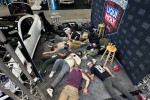 PASMAG Editors’ Top 5 SEMA Builds of 2025
PASMAG Editors’ Top 5 SEMA Builds of 2025
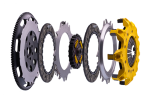 ACT Releases SFI-Approved 225mm Mod-Twin for 1989-1992 Nissan Skyline GT-R (R32)
ACT Releases SFI-Approved 225mm Mod-Twin for 1989-1992 Nissan Skyline GT-R (R32)
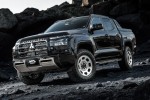 MID Wheels by RAYS Introduces the All-New D8 Off-Road Wheel
MID Wheels by RAYS Introduces the All-New D8 Off-Road Wheel
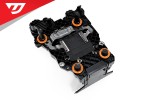 Unitronic TCU Tuning for the 8Y Audi RS3
Unitronic TCU Tuning for the 8Y Audi RS3
 Chopping Block: Acura RDX
Chopping Block: Acura RDX
 First BMW M EV confirmed for 2027
First BMW M EV confirmed for 2027



